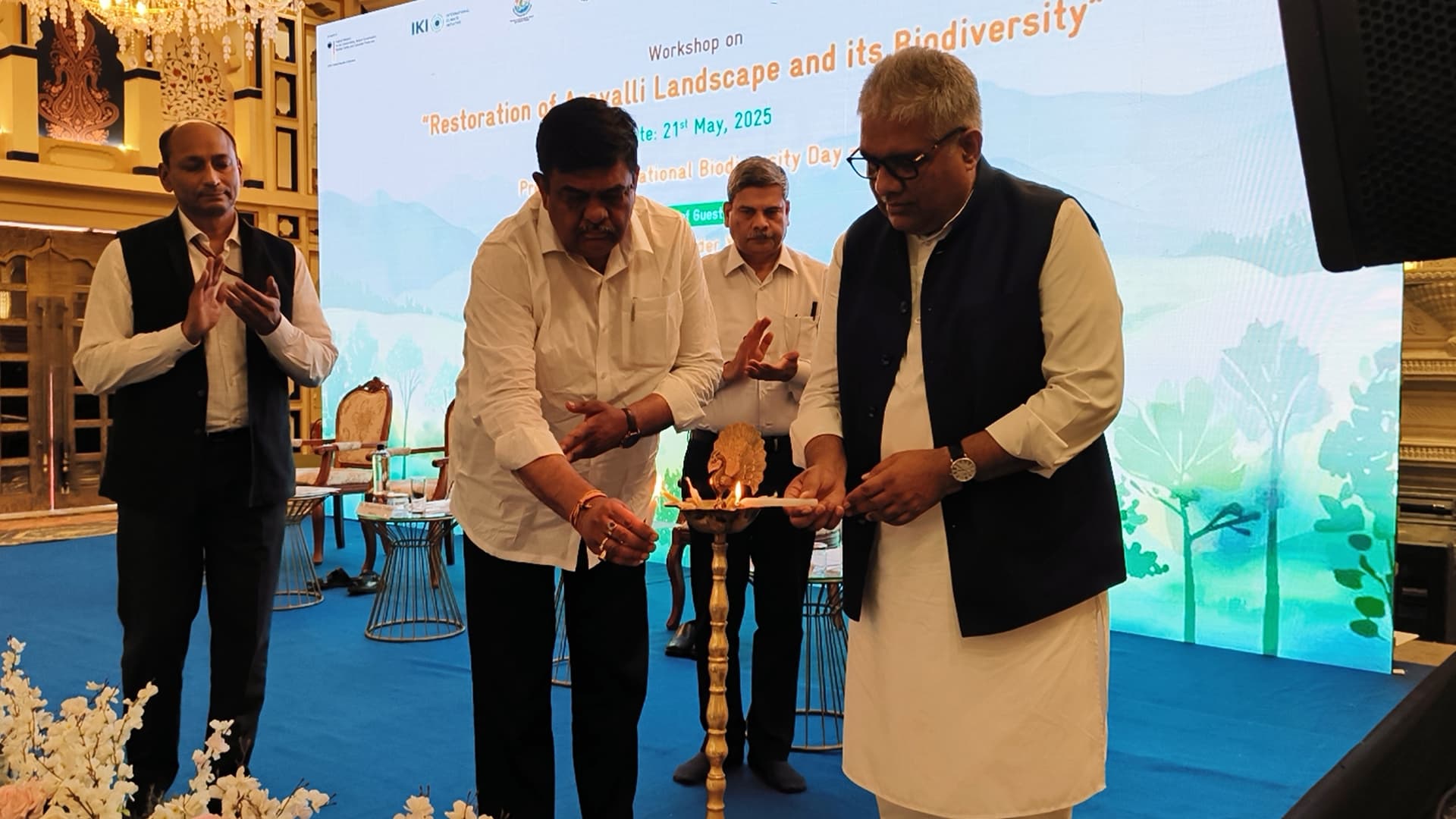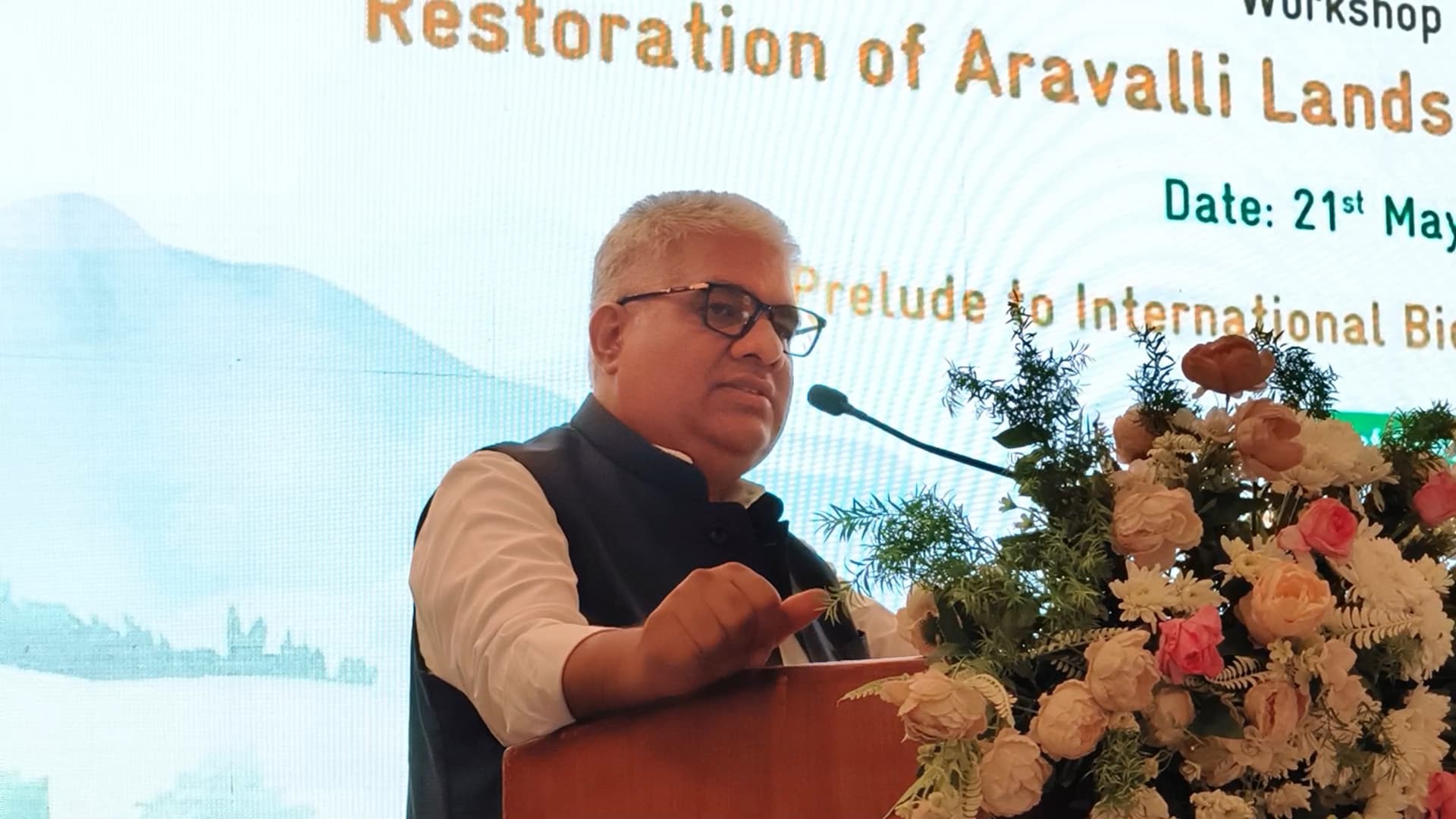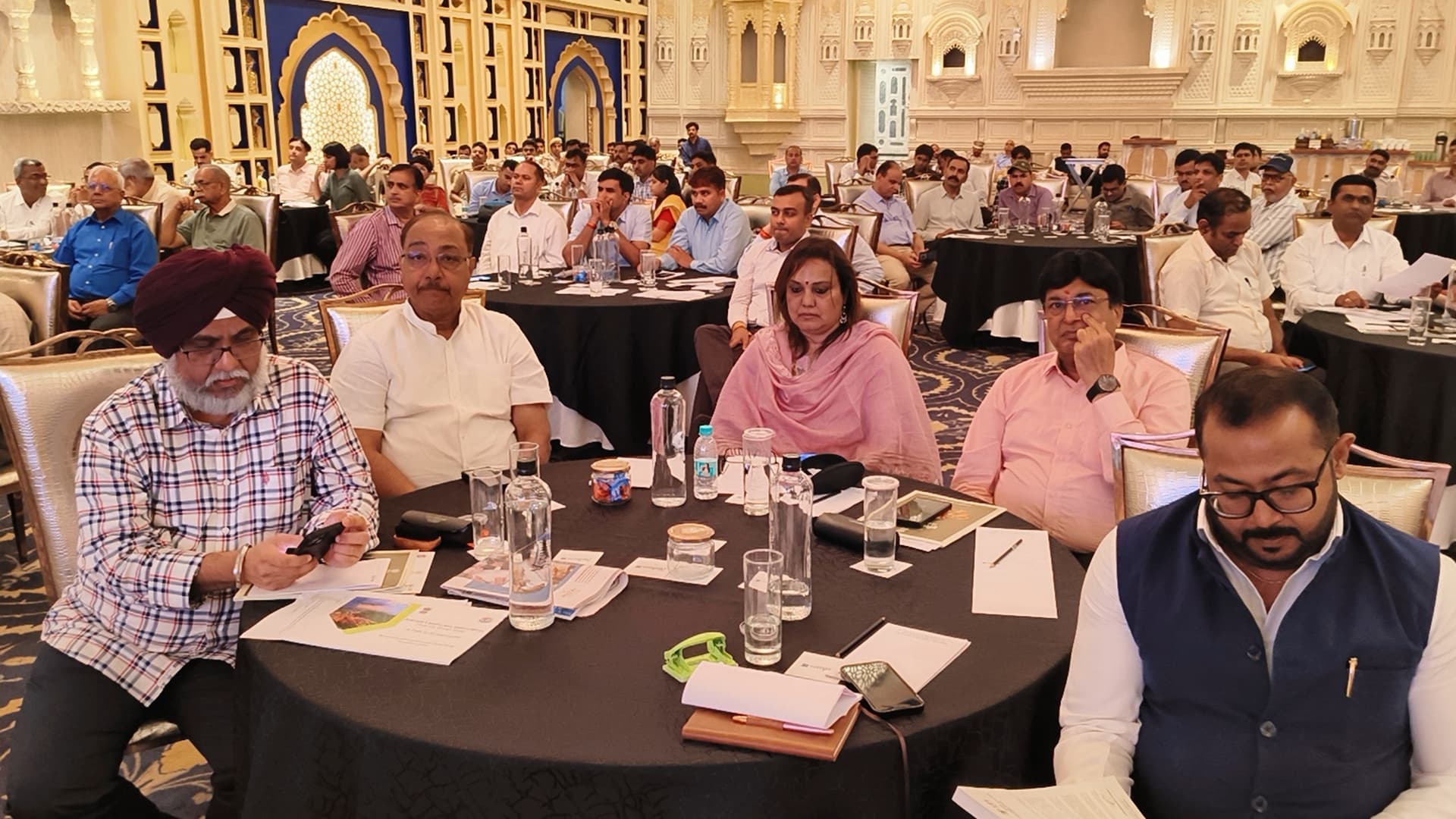Ministry of Environment, Forest and Climate Change
Union Minister Shri Bhupender Yadav unveils Detailed Action Plan for Aravalli Landscape Restoration, a major initiative to restore the Aravalli Hill Range
Adopt Whole of Government and Society Approach for Aravalli Restoration: Shri Bhupender Yadav
National Workshop highlights Multi-stakeholder Strategies for Reviving India’s Oldest Mountain Range
Posted On:
21 MAY 2025 8:12PM by PIB Delhi
A national level workshop involving extensive stakeholder consultations on devising strategies for reviving India’s Oldest Mountain Range – Aravalis was inaugurated by the Union Minister for Environment, Forest and Climate Change, Shri Bhupender Yadav at Udaipur (Rajasthan), today. The event was also graced by Shri Sanjay Sharma, Minister for Forest and Environment, Government of Rajasthan.
The workshop focused on finalization of a Detailed Action Plan for Aravalli Landscape Restoration. The high-level workshop on Restoration of the Aravalli Landscape and its Biodiversity was organized by the Union Ministry of Environment Forest and Climate Change and Rajasthan Forest Department on the eve of the International Day for Biodiversity. It focussed on finalising a detailed Action Plan taking into account the inputs of the field functionaries and the practitioners before launch of the plan of Action across the entire Aravalis.
Speaking on the occasion, the Union Minister mentioned that Prime Minister Shri Narendra Modi had launched ‘Ek Ped Maa Ke Naam’ from Buddha Jayanti Park located on Delhi ridge, forming a part of Aravallis, on the occasion of World Environment Day last year. He emphasised that the Aravalli Green Wall Project will not only lead to increase the green cover and biodiversity of the Aravalli through afforestation, reforestation and restoration of water bodies, but also improve the soil fertility, water availability and climate resilience of the region, besides generating meaningful livelihood opportunities.
Shri Yadav further exhorted all stakeholders across the four States to adopt a ‘Whole of Government’ and ‘Whole of Society’ approach in the restoration of the Aravallis. Adoption of innovative ideas, technological interventions in planning and monitoring and emphasis on public awareness and public participation are paramount to the success of the programme, he stated.
The Minister stated that approaches such as creation of seedling nursery in every panchayat by dovetailing MNREGA and CAMPA, roping in youth and MY Bharat volunteers in taking up eco-restoration of Aravali, implementation of Green Credit Programme for eco-restoration work in Aravalli landscape, restoration of abandoned mines or maintenance water filled mine pits as sources of water and wildlife habitat, could also play a significant part in this initiative. Further, developing Aravalli landscapes and biodiversity for safari, nature parks and for trekking, removal of invasive species and re-plantation with native species and bamboo, roping in Eco-clubs and Eco-Task Force in raising plantations and awareness, linking Amrit Sarovars and waterbodies in Aravali restoration programme, creating a research and monitoring vertical under the NIRANTAR institutions such as BSI and ZSI in taxonomy and organizing annual workshops, could also prove to be effective measures in this direction, the Minister added.
Appreciating the efforts undertaken by the State Forest Departments of Rajasthan, Gujarat, Haryana and Delhi and other stakeholders, Shri Yadav urged the participants for their joint cooperation in attaining the envisioned objectives by adopting an integrated approach for restoration of Aravali from Delhi to Gujarat, with innovative scientific and technical approaches. He also stated that convergence should not only be in implementations of the Schemes but also in their attitude and planning and that the stakeholders should meet each year to review the progress made by the respective State Governments, identify the challenges and share the best practices.
The Action Plan released outlines a science-based, community-led, and policy-supported roadmap to restore the ecological integrity of the Aravallis. It focuses on five pillars:
- Ecological Restoration: Assisted natural regeneration, native species plantation, soil and moisture conservation.
- Community Participation: Involving local communities, especially women and youth, in planning and implementation.
- Policy and Governance: Strengthening regulatory frameworks, convergence of schemes, and effective monitoring.
- Sustainable Livelihoods: Promoting eco-tourism, agroforestry, and non-timber forest produce (NTFP)-based enterprises.
- Research and Innovation: Using GIS-based mapping, remote sensing, and restoration ecology practices for informed action.
The workshop was attended by Secretary (MoEFCC), Shri Tanmay Kumar; DG (Forests) and Special Secretary (MoEFCC), Shri Sushil Kumar Awasthi and other senior officials from the MoEFCC, as well as State Governments of Rajasthan, Haryana, Gujarat and NCT of Delhi. The workshop also saw participation from key partner institution GIZ-India and a large number of forest and environment experts, scientists, civil society representatives, and local community leaders.
The event also saw active participation from various stakeholders and extensive discussions which concluded with a call to action for collective efforts by government agencies, civil society, academia, and citizens to protect and restore the Aravalli landscape for future generations.

UTRJ.jpeg)


*****
VM/GS
(Release ID: 2130371)
Visitor Counter : 1041